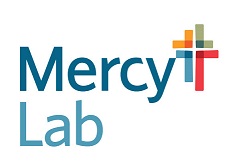| A B C D E F G H I J K L M N O P Q R S T U V W X Y Z # |
MRSA ACTIVE SURVEILLANCE CULTURE
Test CodeLAB2338
Quest Code
90417
CPT Codes
87081
Preferred Specimen
Nasal swab
Other Acceptable Specimens
Specimens from skin sufaces "non-wound" (i.e. axilla, perianal and groin)
Skin screen:
1. Use liquid (red-cap), gel (blue-cap) or Eswab (white-cap) to obtain the specimen.
2. Rub premoistened swab against skin (i.e. axilla, perianal and groin).
3. Return swab back to the plastic transport tube and make sure the cap is on tight.
Instructions
1. Use Amies liquid transport medium (red-cap Copan® or BD® swab), or Amies gel transport medium (blue-cap Copan® or BD® swab) or Eswab to obtain the specimen.
2. Culture both anterior nares (the opening of each nostril) utilizing one culture swab.
3. Insert a premoistened swab (sterile non-bacteriostatic saline or water) about 2 cm and rotate the swab against the nasal mucosa back and forth of each nostril for 3 seconds - slight pressure with a finger on the outside of the nose helps to assure good contact between the swab and the inside of the nose.
4. Return swab back to the plastic transport tube and make sure the cap is on tight.
2. Culture both anterior nares (the opening of each nostril) utilizing one culture swab.
3. Insert a premoistened swab (sterile non-bacteriostatic saline or water) about 2 cm and rotate the swab against the nasal mucosa back and forth of each nostril for 3 seconds - slight pressure with a finger on the outside of the nose helps to assure good contact between the swab and the inside of the nose.
4. Return swab back to the plastic transport tube and make sure the cap is on tight.
Transport Container
Swab in Amies culture media, Eswab or equivalent
Transport Temperature
Room temperature
Specimen Stability
Room temperature: 48 hours
Refrigerated: 48 hours
Frozen: Unacceptable
Refrigerated: 48 hours
Frozen: Unacceptable
Reject Criteria (Eg, hemolysis? Lipemia? Thaw/Other?)
Received frozen • Specimens submitted in formalin • Specimens submitted in viral transport media • Dry swabs • Expired transport media • Specimens >48 hours old • Swabs from environmental sources
Methodology
Chrom Agar method
Setup Schedule
a.m. Daily
Report Available
2 days
Reference Range
No Methicillin Resistant Staphylococcus aureus (MRSA) isolated.
Clinical Significance
MRSA is a major cause of nosocomial and life threatening infections. Infections with MRSA have been associated with a significantly high morbidity, mortality and cost. Selection of these organisms has been greatest in the healthcare setting. However, MRSA has also become more prevalent in the community.
To control the transmission of MRSA, the Society for Healthcare Epidemiology of America (SHEA) has recommended guidelines, which include an active surveillance to identify potential reservoirs and a rigorous infection control program to control the spread of MRSA.
Rapid, accurate, and cost-effective screening tests for MRSA colonization are needed in order to reduce the economic burden of this pathogen.
The MRSA Culture Screen test detects colonization with Methicillin resistant Staphylococcus aureus (MRSA) in patients and can be used as a tool in infection prevention and control efforts. Early detection of this pathogen can accelerate the isolation process, thus minimizing the spread of infections.
To control the transmission of MRSA, the Society for Healthcare Epidemiology of America (SHEA) has recommended guidelines, which include an active surveillance to identify potential reservoirs and a rigorous infection control program to control the spread of MRSA.
Rapid, accurate, and cost-effective screening tests for MRSA colonization are needed in order to reduce the economic burden of this pathogen.
The MRSA Culture Screen test detects colonization with Methicillin resistant Staphylococcus aureus (MRSA) in patients and can be used as a tool in infection prevention and control efforts. Early detection of this pathogen can accelerate the isolation process, thus minimizing the spread of infections.
Performing Laboratory
| Quest Diagnostics-Lenexa |
| 10101 Renner Blvd |
| Lenexa, KS 66219-9752 |
Last Updated: August 13, 2021

